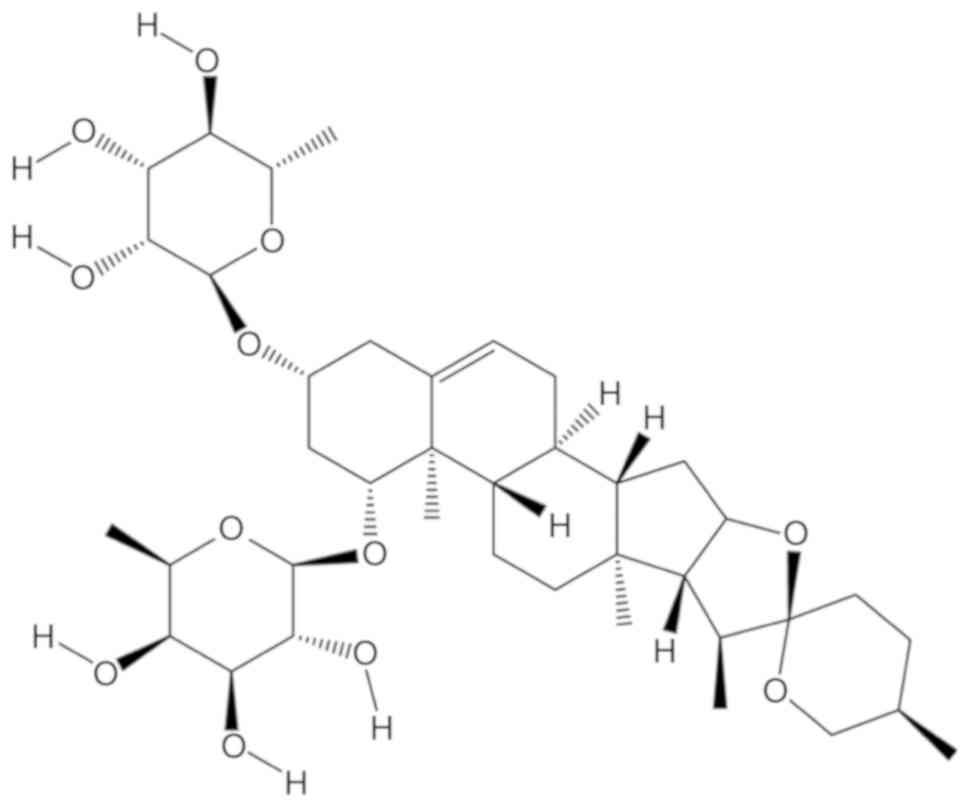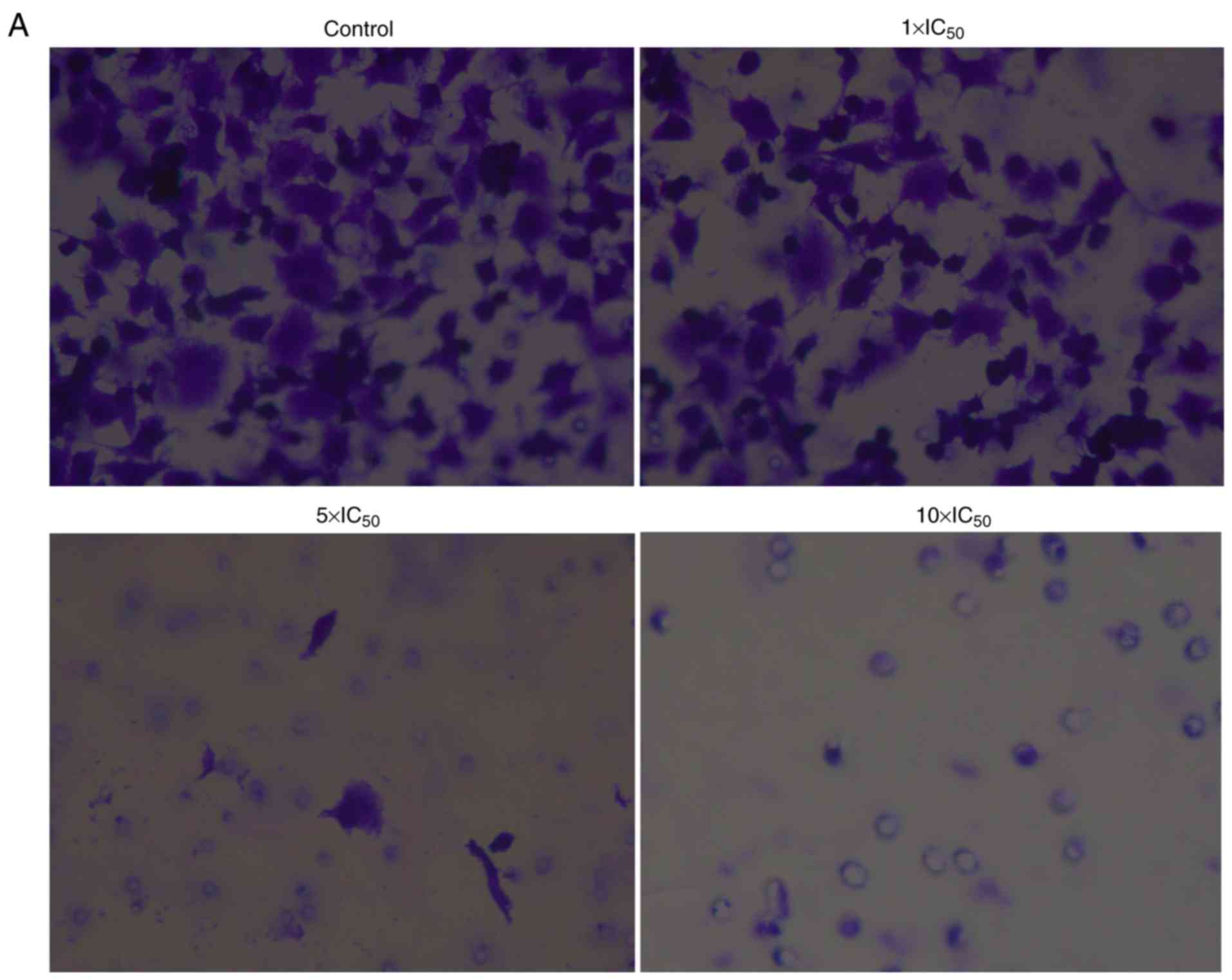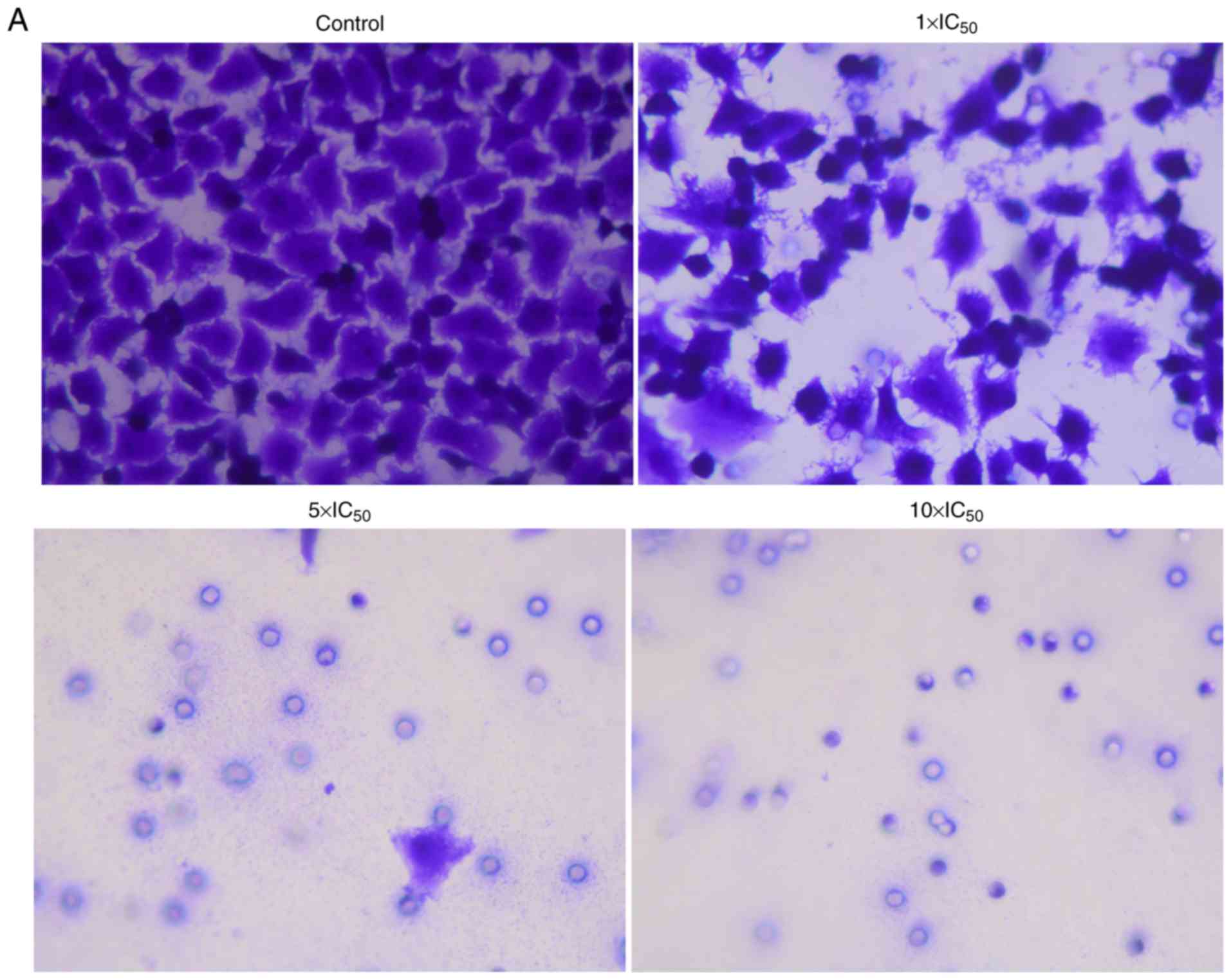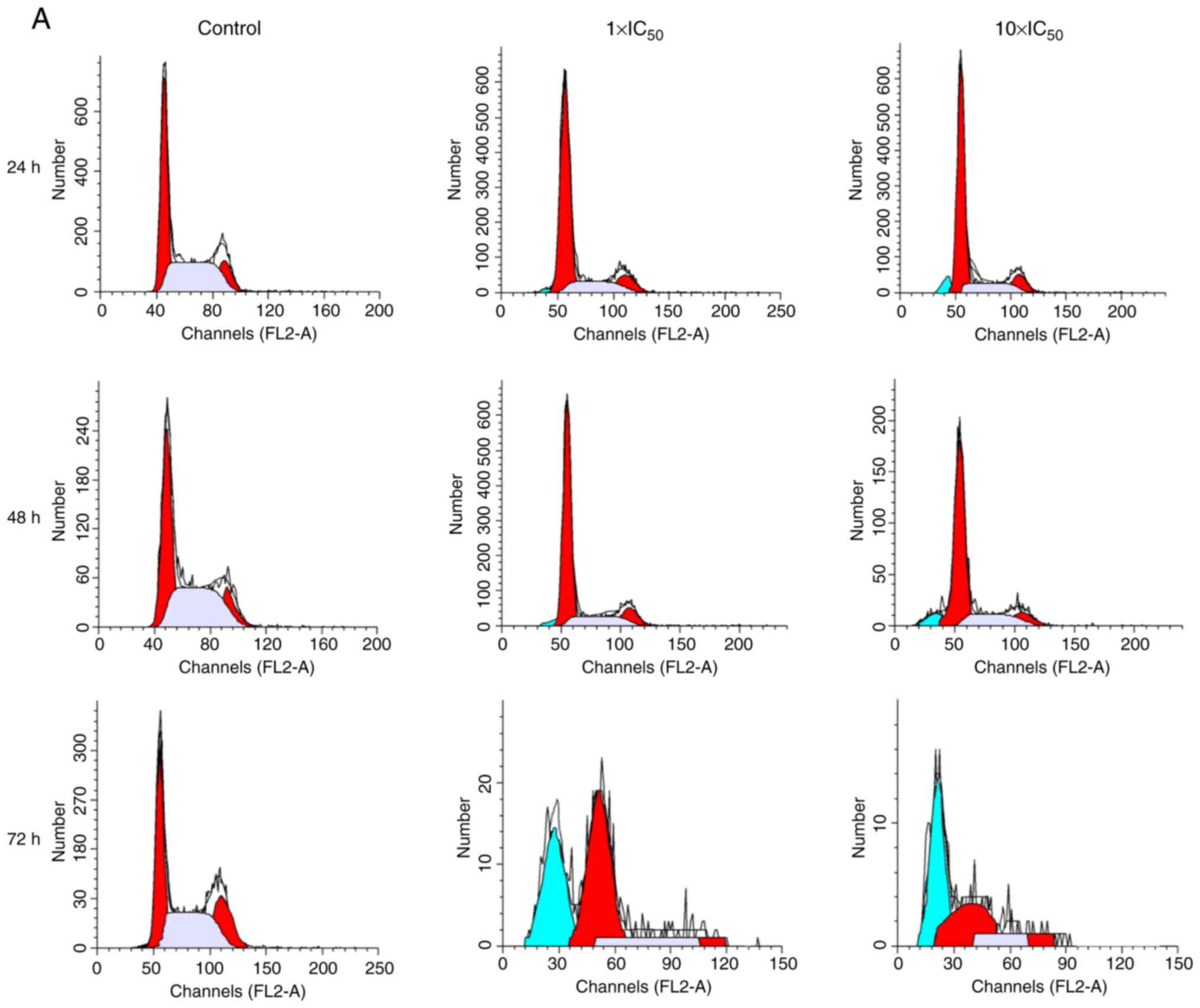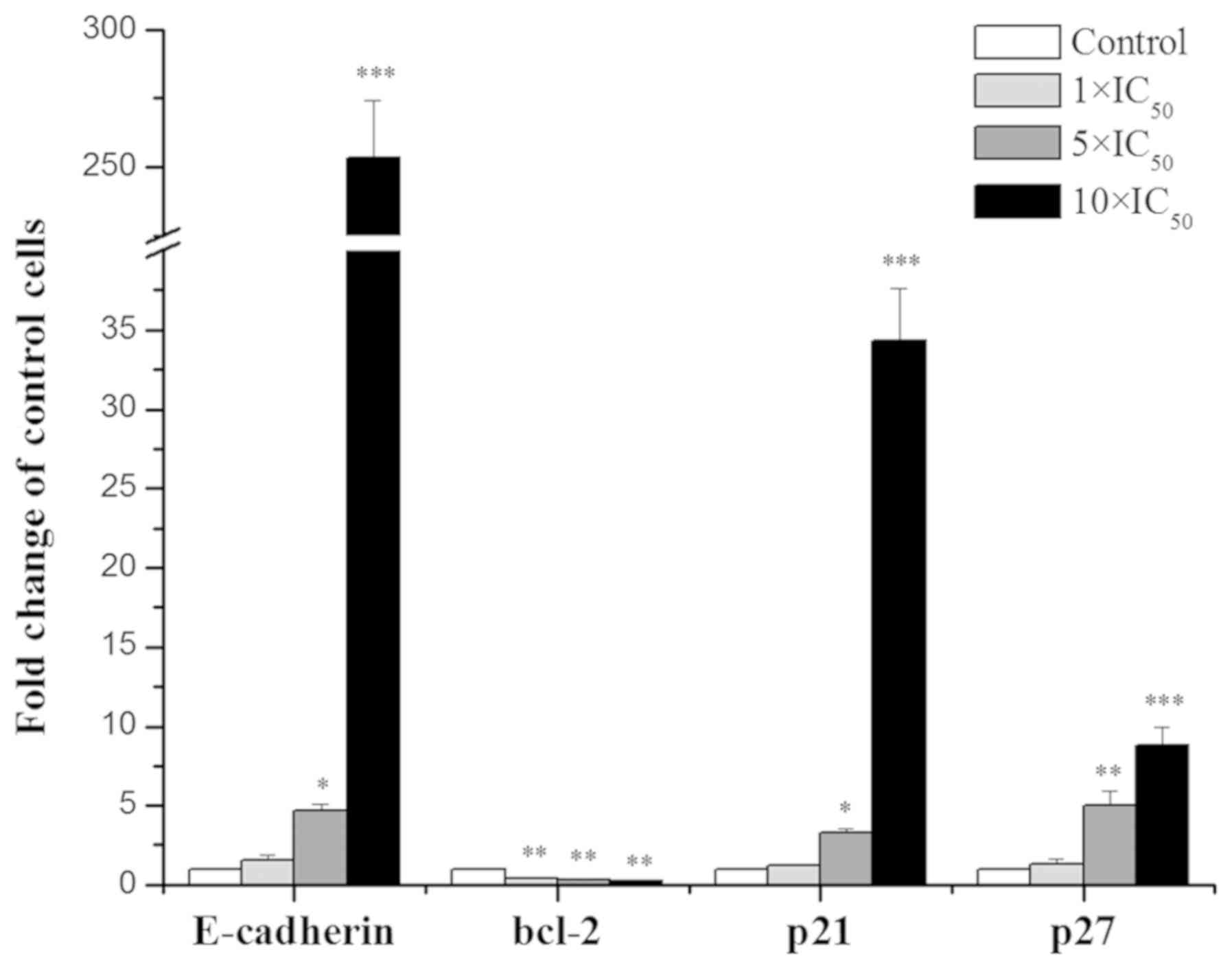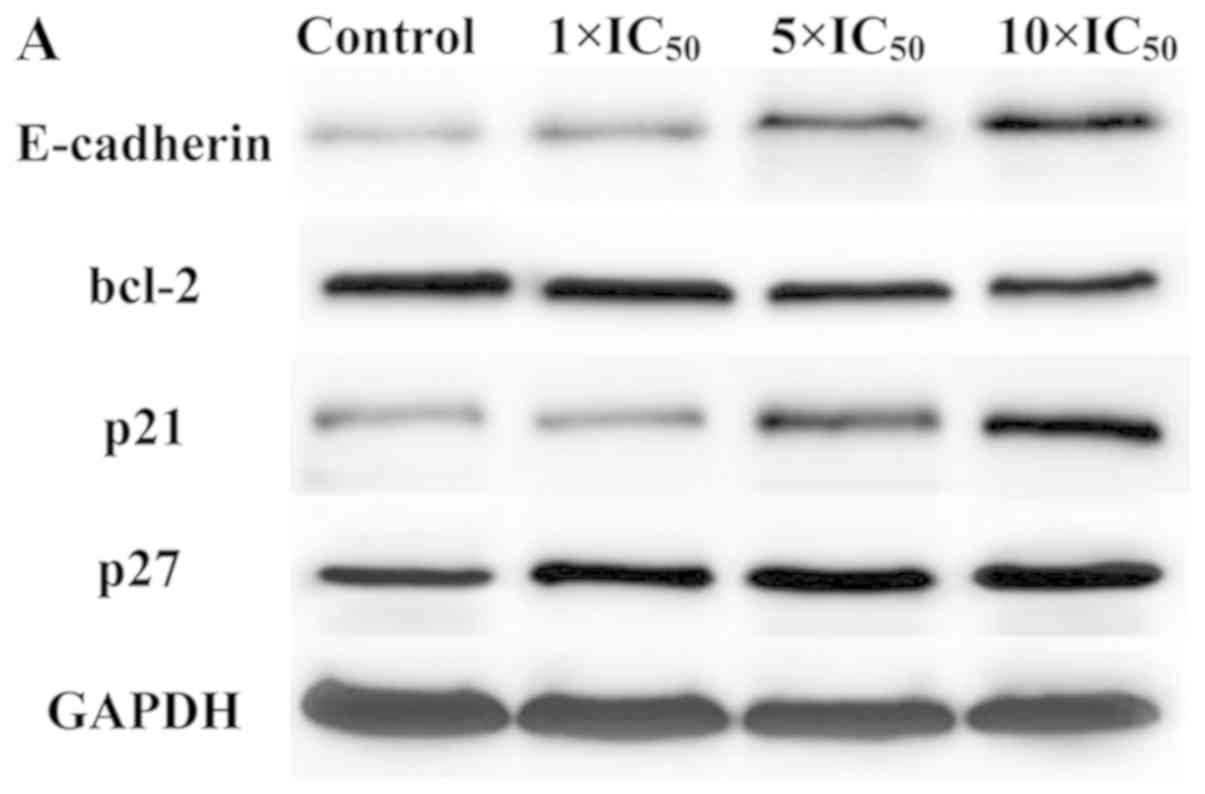|
1
|
WHO, . Cancer. September
12–2018
|
|
2
|
Yang ZJ, Zhao BB and Li L: The
significance of the change pattern of serum CA125 level for judging
prognosis and diagnosing recurrences of epithelial ovarian cancer.
J Ovarian Res. 9:572016. View Article : Google Scholar : PubMed/NCBI
|
|
3
|
Alshenawy HA: Immunohistochemical
expression of epidermal growth factor receptor, E-cadherin, and
matrix metalloproteinase-9 in ovarian epithelial cancer and
relation to patient deaths. Ann Diagn Pathol. 14:387–395. 2010.
View Article : Google Scholar : PubMed/NCBI
|
|
4
|
SEER Cancer Stat Facts, . Ovarian Cancer.
National Cancer Institute. (Bethesda, MD). 2016.
|
|
5
|
Jacobs IJ, Menon U, Ryan A, Gentry-Maharaj
A, Burnell M, Kalsi JK, Amso NN, Apostolidou S, Benjamin E,
Cruickshank D, et al: Ovarian cancer screening and mortality in the
UK collaborative trial of ovarian cancer screening (UKCTOCS): A
randomised controlled trial. Lancet. 387:945–956. 2016. View Article : Google Scholar : PubMed/NCBI
|
|
6
|
Engel N, Oppermann C, Falodun A and Kragl
U: Proliferative effects of five traditional Nigerian medicinal
plant extracts on human breast and bone cancer cell lines. J
Ethnopharmacol. 137:1003–1010. 2011. View Article : Google Scholar : PubMed/NCBI
|
|
7
|
Chinese Pharmacopoeia Commission, .
Pharmacopoeia of the People's Republic of China. China Medi Sci
Press. 26:2015.
|
|
8
|
Hao LZ: The research on the chemical
composition of steroidal saponins of Ophiopogonis Radix. Yanbian
University. 2007.
|
|
9
|
Li N, Zhang L, Zeng KW, Zhou Y, Zhang JY
and Che YY: Cytotoxic steroidal saponins from Ophiopogon
japonicus. Steroids. 78:1–7. 2013. View Article : Google Scholar : PubMed/NCBI
|
|
10
|
Chen M, Du Y, Qui M, Wang M, Chen K, Huang
Z, Jiang M, Xiong F, Chen J, Zhou J, et al: Ophiopogonin B-induced
autophagy in non-small cell lung cancer cells via inhibition of the
PI3K/Akt signaling pathway. Oncol Rep. 29:430–436. 2013. View Article : Google Scholar : PubMed/NCBI
|
|
11
|
Gao GY, Ma J, Lu P, Jiang X and Chang C:
Ophiopogonin B induces the autophagy and apoptosis of colon cancer
cells by activating JNK/c-Jun signaling pathway. Biomed
Pharmacother. 108:1208–1215. 2018. View Article : Google Scholar : PubMed/NCBI
|
|
12
|
Nazim UM, Jeong JK and Park SY:
Ophiopogonin B sensitizes TRAIL-induced apoptosis through
activation of autophagy flux and downregulates cellular FLICE-like
inhibitory protein. Oncotarget. 9:4161–4172. 2017. View Article : Google Scholar : PubMed/NCBI
|
|
13
|
Chen M, Hu C, Guo Y, Jiang R, Jiang H,
Zhou Y, Fu H, Wu M and Zhang X: Ophiopogonin B suppresses the
metastasis and angiogenesis of A549 cells in vitro and in
vivo by inhibiting the EphA2/Akt signaling pathway. Oncol Rep.
40:1339–1347. 2018.PubMed/NCBI
|
|
14
|
Lee JH, Kim C, Lee SG, Sethi G and Ahn KS:
Ophiopogonin D, a steroidal glycoside abrogates STAT3 signaling
cascade and exhibits anti-cancer activity by causing GSH/GSSG
imbalance in lung carcinoma. Cancers (Basel). 10:4272018.
View Article : Google Scholar
|
|
15
|
Lu Z, Wang H, Zhu M, Song W, Wang J, Wu C,
Kong Y, Guo J, Li N, Liu J, et al: Ophiopogonin D′, a natural
product from radix ophiopogonis, induces in vitro and in vivo
RIPK1-dependent and caspase-independent apoptotic death in
androgen-independent human prostate cancer cells. Front Pharmacol.
9:4322018. View Article : Google Scholar : PubMed/NCBI
|
|
16
|
He J, Wei X, Li S, Quan X, Li R, Du H,
Yuan S and Sun L: DT-13 suppresses breast cancer metastasis by
modulating PLOD2 in the adipocytes microenvironment. Phytomedicine.
59:1527782019. View Article : Google Scholar : PubMed/NCBI
|
|
17
|
Wei X, Mao T, Li S, He J, Hou X, Li H,
Zhan M, Yang X, Li R, Xiao J, et al: DT-13 inhibited the
proliferation of colorectal cancer via glycolytic metabolism and
AMPK/mTOR signaling pathway. Phytomedicine. 54:120–131. 2019.
View Article : Google Scholar : PubMed/NCBI
|
|
18
|
Wang Z, Wang Y, Zhu S, Liu Y, Peng X,
Zhang S, Zhang Z, Qiu Y, Jin M, Wang R, et al: DT-13 inhibits
proliferation and metastasis of human prostate cancer cells through
blocking PI3K/Akt pathway. Front Pharmacol. 9:14502018. View Article : Google Scholar : PubMed/NCBI
|
|
19
|
Li H, Sun L, de Carvalho EL, Li X, Lv X,
Khan GJ, Semukunzi H, Yuan S and Lin S: DT-13, a saponin monomer of
dwarf lilyturf tuber, induces autophagy and potentiates anti-cancer
effect of nutrient deprivation. Eur J Pharmacol. 781:164–172. 2016.
View Article : Google Scholar : PubMed/NCBI
|
|
20
|
Zhang Y, Liu J, Kou J, Yu J and Yu B:
DT-13 suppresses MDA-MB-435 cell adhesion and invasion by
inhibiting MMP-2/9 via the p38 MAPK pathway. Mol Med Rep.
6:1121–1125. 2012. View Article : Google Scholar : PubMed/NCBI
|
|
21
|
Ren-Ping Z, Sen-Sen L, Yuan ST, Yu BY, Bai
XS, Sun L and Zhang LY: DT-13, a saponin of dwarf lilyturf tuber,
exhibits anti-cancer activity by down-regulating C-C chemokine
receptor type 5 and vascular endothelial growth factor in
MDA-MB-435 cells. Chin J Nat Med. 12:24–29. 2014.PubMed/NCBI
|
|
22
|
Lin SS, Fan W, Sun L, Li FF, Zhao RP,
Zhang LY, Yu BY and Yuan ST: The saponin DT-13 inhibits gastric
cancer cell migration through down-regulation of CCR5-CCL5 axis.
Chin J Nat Med. 12:833–840. 2014.PubMed/NCBI
|
|
23
|
Wei XH, Lin SS, Liu Y, Zhao RP, Khan GJ,
Du HZ, Mao TT, Yu BY, Li RM, Yuan ST and Sun L: DT-13 attenuates
human lung cancer metastasis via regulating NMIIA activity under
hypoxia condition. Oncol Rep. 36:991–999. 2016. View Article : Google Scholar : PubMed/NCBI
|
|
24
|
Du H, Liu Y, Chen X, Yu X, Hou X, Li H,
Zhan M, Lin S, Lu L, Yuan S and Sun L: DT-13 synergistically
potentiates the sensitivity of gastric cancer cells to topotecan
via cell cycle arrest in vitro and in vivo. Eur J Pharmacol.
818:124–131. 2018. View Article : Google Scholar : PubMed/NCBI
|
|
25
|
Yu XW, Lin S, Du HZ, Zhao RP, Feng SY, Yu
BY, Zhang LY, Li RM, Qian CM, Luo XJ, et al: Synergistic
combination of DT-13 and topotecan inhibits human gastric cancer
via myosin IIA-induced endocytosis of EGF receptor in vitro and in
vivo. Oncotarget. 7:32990–33003. 2016. View Article : Google Scholar : PubMed/NCBI
|
|
26
|
Yu XW, Wei D, Gao YS, Du HZ, Yu BY, Li RM,
Qian CM, Luo XJ, Yuan ST, Wang JS and Sun L: Synergistic
combination of DT-13 and topotecan inhibits aerobic glycolysis in
human gastric carcinoma BGC-823 cells via NM IIA/EGFR/HK II axis. J
Cell Mol Med. 23:6622–6634. 2019. View Article : Google Scholar : PubMed/NCBI
|
|
27
|
Li H, Sun L, Li H, Lv X, Semukunzi H, Li
R, Yu J, Yuan S and Lin S: DT-13 synergistically enhanced
vinorelbine-mediated mitotic arrest through inhibition of
FOXM1-BICD2 axis in non-small-cell lung cancer cells. Cell Death
Dis. 8:e28102017. View Article : Google Scholar : PubMed/NCBI
|
|
28
|
Li H, Sun L, Li H, Lv X, Semukunzi H, Li
R, Yu J, Yuan S and Lin S: DT-13, a saponin monomer 13 of the Dwarf
lilyturf tuber, synergized with vinorelbine to induce mitotic
arrest via activation of ERK signaling pathway in NCI-H1299 cells.
Biomed Pharmacother. 89:1277–1285. 2017. View Article : Google Scholar : PubMed/NCBI
|
|
29
|
Wang H, Yu H, Sun Y, Zhao H, Guo Z and Yu
B: Liriopesides B inhibited cell growth and decreased CA125 level
in human ovarian cancer A2780 cells. Nat Prod Res. 31:2198–2202.
2017. View Article : Google Scholar : PubMed/NCBI
|
|
30
|
Nizamutdinova IT, Lee GW, Lee JS, Cho MK,
Son KH, Jeon SJ, Kang SS, Kim YS, Lee JH, Seo HG, et al: Tanshinone
I suppresses growth and invasion of human breast cancer cells,
MDA-MB-231, through regulation of adhesion molecules.
Carcinogenesis. 29:1885–1892. 2008. View Article : Google Scholar : PubMed/NCBI
|
|
31
|
Yang CX, Liu SY, San JH and Yang M:
Matrine suppresses proliferation of Raji cells via inhibition of
notch signaling pathway. Chin J Biologicals. 30:1162–1167.
2017.
|
|
32
|
Wang H, Ao M, Wu J and Yu L: TNFα and
Fas/FasL pathways are involved in 9-methoxycamptothecin-induced
apoptosis in cancer cells with oxidative stress and G2/M cell cycle
arrest. Food Chem Toxicol. 55:396–410. 2013. View Article : Google Scholar : PubMed/NCBI
|
|
33
|
Livak KJ and Schmittgen TD: Analysis of
relative gene expression data using real-time quantitative PCR and
the 2(-Delta Delta C(T)) method. Methods. 25:402–408. 2001.
View Article : Google Scholar : PubMed/NCBI
|
|
34
|
Jiang N, Zhou LQ and Zhang XY:
Downregulation of the nucleosome-binding protein 1 (NSBP1) gene can
inhibit the in vitro and in vivo proliferation of prostate cancer
cells. Asian J Androl. 12:709–717. 2010. View Article : Google Scholar : PubMed/NCBI
|
|
35
|
Sun P, Jin J, Wang Y, Ren X, Chen L, Lin Z
and Piao Y: Baicalein induces the apoptosis of gastric cancer
MGC-803 cells. Tumor. 37:1041–1046. 2017.
|
|
36
|
Tan W, Lu J, Huang M, Li Y, Chen M, Wu G,
Gong J, Zhong Z, Xu Z, Dang Y, et al: Anti-cancer natural products
isolated from chinese medicinal herbs. Chin Med. 6:272011.
View Article : Google Scholar : PubMed/NCBI
|
|
37
|
Braga V: Spatial integration of E-cadherin
adhesion, signalling and the epithelial cytoskeleton. Curr Opin
Cell Biol. 42:138–145. 2016. View Article : Google Scholar : PubMed/NCBI
|
|
38
|
Li Y, Liang J, Kang S, Dong Z, Wang N,
Xing H, Zhou R, Li X and Zhao X: E-cadherin gene polymorphisms and
haplotype associated with the occurrence of epithelial ovarian
cancer in Chinese. Gynecol Oncol. 108:409–414. 2008. View Article : Google Scholar : PubMed/NCBI
|
|
39
|
Cheng JC, Chang HM, Xiong S, So WK and
Leung PC: Sprouty2 inhibits amphiregulin-induced down-regulation of
E-cadherin and cell invasion in human ovarian cancer cells.
Oncotarget. 7:81645–81660. 2016. View Article : Google Scholar : PubMed/NCBI
|
|
40
|
Zhang Y, Fan N and Yang J: Expression and
clinical significance of hypoxia-inducible factor 1α, Snail and
E-cadherin in human ovarian cancer cell lines. Mol Med Rep.
12:3393–3399. 2015. View Article : Google Scholar : PubMed/NCBI
|
|
41
|
Lau MT and Leung PC: The PI3K/Akt/mTOR
signaling pathway mediates insulin-like growth factor 1-induced
E-cadherin down-regulation and cell proliferation in ovarian cancer
cells. Cancer Lett. 326:191–198. 2012. View Article : Google Scholar : PubMed/NCBI
|
|
42
|
Zhao J, Klausen C, Xiong S, Cheng JC,
Chang HM and Leung PC: Growth differentiation factor 8 induces
SKOV3 ovarian cancer cell migration and E-cadherin down-regulation.
Cell Signal. 28:1615–1622. 2016. View Article : Google Scholar : PubMed/NCBI
|
|
43
|
Cheng JC, Qiu X, Chang HM and Leung PC:
HER2 mediates epidermal growth factor-induced down-regulation of
E-cadherin in human ovarian cancer cells. Biochem Biophys Res
Commun. 434:81–86. 2013. View Article : Google Scholar : PubMed/NCBI
|
|
44
|
So WK, Fan Q, Lau MT, Qiu X, Cheng JC and
Leung PC: Amphiregulin induces human ovarian cancer cell invasion
by down-regulating E-cadherin expression. FEBS Lett. 588:3998–4007.
2014. View Article : Google Scholar : PubMed/NCBI
|
|
45
|
Qiu X, Cheng JC, Klausen C, Fan Q, Chang
HM, So WK and Leung PC: Transforming growth factor-α induces human
ovarian cancer cell invasion by down-regulating E-cadherin in a
Snail-independent manner. Biochem Biophys Res Commun. 461:128–135.
2015. View Article : Google Scholar : PubMed/NCBI
|
|
46
|
Wu Q, Guo R, Lin M, Zhou B and Wang Y:
MicroRNA-200a inhibits CD133/1+ ovarian cancer stem cells migration
and invasion by targeting E-cadherin repressor ZEB2. Gynecol Oncol.
122:149–154. 2011. View Article : Google Scholar : PubMed/NCBI
|
|
47
|
Zhang Y, Han Y, Zhai K, Sun M, Liu J, Yu B
and Kou J: Ophiopogonin-D suppresses MDA-MB-435 cell adhesion and
invasion by inhibiting matrix metalloproteinase-9. Mol Med Rep.
12:1493–1498. 2015. View Article : Google Scholar : PubMed/NCBI
|
|
48
|
Ansenberger K, Zhuge Y, Lagman JA,
Richards C, Barua A, Bahr JM and Hales DB: E-cadherin expression in
ovarian cancer in the laying hen, gallus domesticus, compared to
human ovarian cancer. Gynecol Oncol. 113:362–369. 2009. View Article : Google Scholar : PubMed/NCBI
|
|
49
|
Harada K and Ogden GR: An overview of the
cell cycle arrest protein, p21(WAF1). Oral Oncol. 36:3–7. 2000.
View Article : Google Scholar : PubMed/NCBI
|
|
50
|
Sørby LA, Andersen SN, Bukholm IR and
Jacobsen MB: Evaluation of suitable reference genes for
normalization of real-time reverse transcription PCR analysis in
colon cancer. J Exp Clin Cancer Res. 29:1442010. View Article : Google Scholar : PubMed/NCBI
|
|
51
|
Guchelaar HJ, Vermes A, Vermes I and
Haanen C: Apoptosis: Molecular mechanisms and implications for
cancer chemotherapy. Pharm World Sci. 19:119–125. 1997. View Article : Google Scholar : PubMed/NCBI
|
|
52
|
Kim R, Tanabe K, Uchida Y, Emi M, Inoue H
and Toge T: Current status of the molecular mechanisms of
anticancer drug-induced apoptosis. The contribution of
molecular-level analysis to cancer chemotherapy. Cancer Chemother
Pharmacol. 50:343–352. 2002. View Article : Google Scholar : PubMed/NCBI
|















